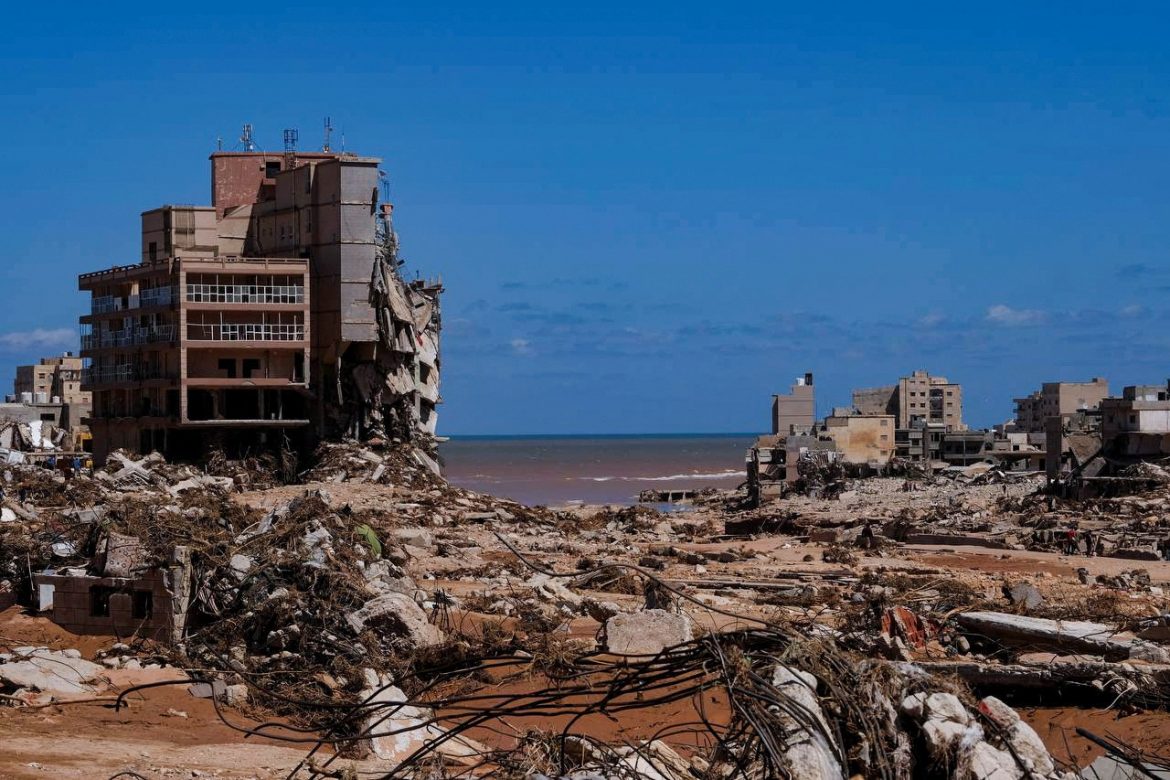Rescue teams in Libya have called for international assistance as they continue to struggle to get essential medical supplies to survivors of the tsunami-like floods that have killed thousands of people and crippled health services.
Econaiplus had reported how more than 5000 people were confirmed daed and 10,000 others missing after the devastating floods wreaked havoc in Derna, the Libyan port city where two dams burst. Video footage circulating on social media showed people pleading for help and screaming as muddy water engulfed their homes. Other video captured torrents sweeping away cars on streets, which had turned into rivers.
“The situation in eastern Libya is unimaginable,” Khadija Andidi, a health rights activist and former director of the Red Crescent branch in Oubari, south Libya was quoted as saying after floodwaters washed away entire neighbourhoods, including many medical facilities.
Authorities and aid organisations are said to be facing the task of not only reaching survivors with aid but also preventing a further crisis from disease outbreaks. As rescue teams race against time with limited equipment, survivors face the hopeless task of finding health services to keep them alive after hospitals were washed away and taken out of service.
“Entire families are missing,” Andidi was quoted as telling SciDev.Net. “My fellow paramedics who managed to reach Derna are having difficulty securing medical services for survivors,”. “These are scenes that we are not used to and we have no experience in dealing with these situations, so Libya alone or even its Arab neighbours will not be able to act.
Speaking further, she said “We need more support from the international community, with rescue teams with experience in dealing with these conditions.”
Government official Moneim Al-Majdoub, a member of the Soussa damage assessment committee, said that the situation there was less severe but nevertheless required international assistance.
“Things are not as bad in Soussa as in Derna, whose features have completely changed, and the smell of corpses fills the place,” said Al-Majdoub but he added: “We still need experienced rescue teams, because the teams currently working […] are not professionals and are not used to dealing with such disasters, which we are witnessing for the first time.”
Story was adapted from SciDev.Net
